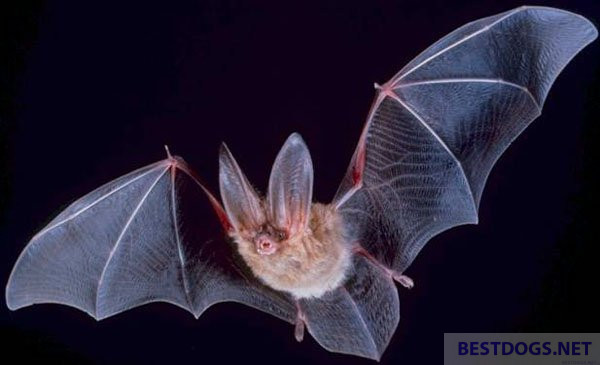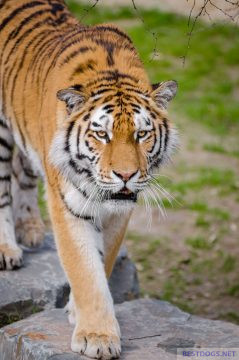Pets and the risks of Covid-19 (Coronavirus).

The exact origin of the coronavirus and the disease COVID-19 is still unknown, but it certainly originates from an animal, probably a bat. At this time, there is no evidence that animals play a significant role in the spread of the coronavirus that causes COVID-19 disease to humans. Therefore, based on the little information available so far, the risk of animals transmitting COVID-19 to humans is considered low.
However, further research is needed to understand if and how different animal species could be affected by COVID-19. Although the learning process about the virus is far from complete, it appears that in some cases it can be transmitted from humans to animals.
Coronaviruses are a large family of viruses. Some coronaviruses cause flu-like illnesses in humans while others can cause disease in certain animal species (for example, cattle, camels and bats). Some coronaviruses only infect animals and not humans.
Transmission of the coronavirus to humans
Table of Contents
Some coronaviruses that infect animals can be transmitted to humans and then spread between humans, but this has been rare so far.
The coronavirus SARS-CoV-2 was probably caused by bats and the first reported infections were linked to a market for live animals. Since then, the virus has spread from person to person.

SARS-CoV-2 spreads mainly from person to person by breathing droplets when coughing, sneezing and speaking. At this time, there is no evidence that animals play a significant role in the spread of the virus that causes COVID-19. Therefore, the risk of animals transmitting COVID-19 to humans is considered low. However, only the future will show whether and how different animal species can be affected by COVID-19.
Infection of animals with the coronavirus
It is now known that cats, dogs and some other mammals can be infected with SARS-CoV-2. However, not all animal species that can be infected by the virus are yet known.
There are reports from all over the world about animals that have been infected with the virus. Among them are a few domestic cats and dogs in several countries that were infected with SARS-CoV-2. Most of these pets became ill after contact with a person infected by COVID-19.
Basically cats, as well as big cats and marten-like animals such as ferrets are more sensitive to the coronavirus and can be infected more easily and more often.
It is important, however, that in previously infected dogs, the sample was taken from the snout – from the tongue – of the animal, so that the pathogen was not ‘in’ the animal, but only ‘on’ it. The dogs were then quarantined and corona tests were repeated several times with all results being negative.
A few days ago, two corona diseases in pets were reported in Germany for the first time since the introduction of an obligation to register. A cat from Frankfurt (Main) and a dog from Munich were affected.
According to the World Organization for Animal Health, however, only about 70 infections in pets have been detected worldwide, which is practically negligible compared to infections between humans.
However, following the corona outbreaks on mink farms in Denmark, the risks to wildlife from human infections still need to be investigated.
Amazon Basics Standard Dog Poop Bags With Dispenser and Leash Clip, Unscented, 300 Count, 20 Pack of 15, Black, 13 Inch x 9 Inch
$8.94 (as of April 24, 2024 09:05 GMT +03:00 - More infoProduct prices and availability are accurate as of the date/time indicated and are subject to change. Any price and availability information displayed on [relevant Amazon Site(s), as applicable] at the time of purchase will apply to the purchase of this product.)Meow Mix Original Choice Dry Cat Food, 6.3 Pound Bag
$8.99 (as of April 25, 2024 09:07 GMT +03:00 - More infoProduct prices and availability are accurate as of the date/time indicated and are subject to change. Any price and availability information displayed on [relevant Amazon Site(s), as applicable] at the time of purchase will apply to the purchase of this product.)Dr. Elsey’s Premium Clumping Cat Litter - Ultra - 99.9% Dust-Free, Low Tracking, Hard Clumping, Superior Odor Control, Unscented & Natural Ingredients
$20.99 (as of April 25, 2024 09:07 GMT +03:00 - More infoProduct prices and availability are accurate as of the date/time indicated and are subject to change. Any price and availability information displayed on [relevant Amazon Site(s), as applicable] at the time of purchase will apply to the purchase of this product.)Transmission of the coronavirus from humans to animals
Experience with the virus is constantly expanding and it appears that under certain circumstances it can be transmitted from humans to animals. This is especially true when in close contact with a person who is ill with COVID-19.
In Italy, 540 dogs and 277 cats were tested in households of persons suffering from COVID-19, especially in Lombardy, which is particularly affected by corona. Antibodies to the virus were found in 3.4% of the dogs and 3.9% of the cats.
The tests for viruses in swabs from the mouth, nose, throat were negative in all animals and virus excretion ceased after two weeks. Therefore, these pets most likely do not transmit the virus, but can be infected by infected humans. Also, animals are unlikely to die from COVID-19 infection.
Minks
Since some workers on these farms had COVID-19, it is likely that infected farmworkers were the original source of infection. Once the virus has been introduced into a farm, it can be transmitted both between mink and from mink to other animals on the farm (for example, dogs and cats).
At present, however, there is no evidence that animals play a significant role in the spread of SARS-CoV-2 to humans. However, reports from infected mink farms in the Netherlands and Denmark suggest that there is a possibility of SARS-CoV-2 spreading from mink to humans in these environments.
Research on animals with COVID-19
To obtain more information on how the virus can infect different animal species, numerous studies are currently being conducted.
The latest experimental studies have shown that cats, dogs, ferrets, flying foxes, bats, hamsters and shrews can be infected with the virus. Cats, ferrets, flying foxes, flying foxes, hamsters and tree shrews can also transmit the infection to other conspecifics under laboratory conditions.
Data from studies indicate that dogs can be infected, but cannot transmit the virus as easily as cats and ferrets.
In contrast, laboratory mice, pigs, chickens and ducks do not appear to become infected or spread the infection, according to study results.
However, these results are based on some animals and do not conclusively prove whether animals can transmit the infection to humans. Further studies are needed to understand if and how different animals could be affected by COVID-19.
Pets in times of COVID-19
For some it is self-evident, others have yet to learn: Pets must be treated like other, human family members. I.e. in times of Corona it is also advisable not to let your pets come into contact with people outside your own household.
If a person in your own household falls ill with COVID-19, this person must be isolated from all others, including pets.
Until more is known about how this virus affects animals, pets should be treated like other human family members to protect them from possible infection. Since there is a risk that people with COVID-19 could transmit the virus to animals, it is recommended that pet owners limit their pet’s interaction with people outside their household.

Cats should be kept indoors if possible, instead of leaving them unattended outside.
Dogs on a leash should also run at least 2 meters (yards) away from other animals. Also avoid public places where large numbers of people congregate. Pets cannot wear masks as a protective measure, but they could harm the animal.
There is no evidence that the virus can be transmitted from pets to humans via skin, fur or hair. Washing or bathing the pet with chemical disinfectants, alcohol, hydrogen peroxide or other products such as hand disinfectants, chemical wipes or other industrial or surface cleaners does not help and is dangerous and animal cruelty.
The veterinarian knows and has suitable products for bathing or cleaning the pet !
If the pet falls ill or is suspected to be infected with COVID-19, the veterinarian is also the appropriate contact person.
Protection of pets in case of illness
If COVID-19 disease is suspected or confirmed by testing, contact with your own pets and all other animals should be restricted, as well as with other people. This is necessary at least until more is known about this virus and its effects on animals.
If you are ill, you should therefore temporarily have your pets cared for by another person. Contact with the pet should be avoided, which also includes petting, cuddling, kissing or being licked, giving out food or sleeping in the same bed or sitting together on the couch.
If you still have to take care of your pet during the illness or if you are inevitably close to it, wearing a mask and washing your hands before and after contact with the pet is indicated.
If the owner is ill with COVID-19 and the pet also becomes ill, you should never take it to the veterinary clinic yourself. The best thing to do is to call your veterinarian and let him know that you are ill with COVID-19. The veterinarian can then coordinate the further procedure with the owner.
Healthy contact with animals
There is no evidence that animals play a significant role in the spread of COVID-19. Based on the limited information available so far, the risk of animals transmitting COVID-19 to humans is considered low.

However, since all animals can carry germs that can make people ill, it is always advisable to follow certain health care habits in the vicinity of pets and other animals.
Thus one should wash one’s hands after handling animals, as well as with food, supplies or wastes in principle. The handling and the environment of the domestic animal should be kept hygienically clean.
Of course, the health of the pet should also be checked regularly and the veterinarian can certainly give some more tips!
Also one should always remember that very young children up to the age of five years, as well as people with a weakened immune system and older adults can fall ill with any germs that some animals might carry.
UPDATE – see also New Coronavirus Strain Found in Dogs Can Make Its Way to Humans.










